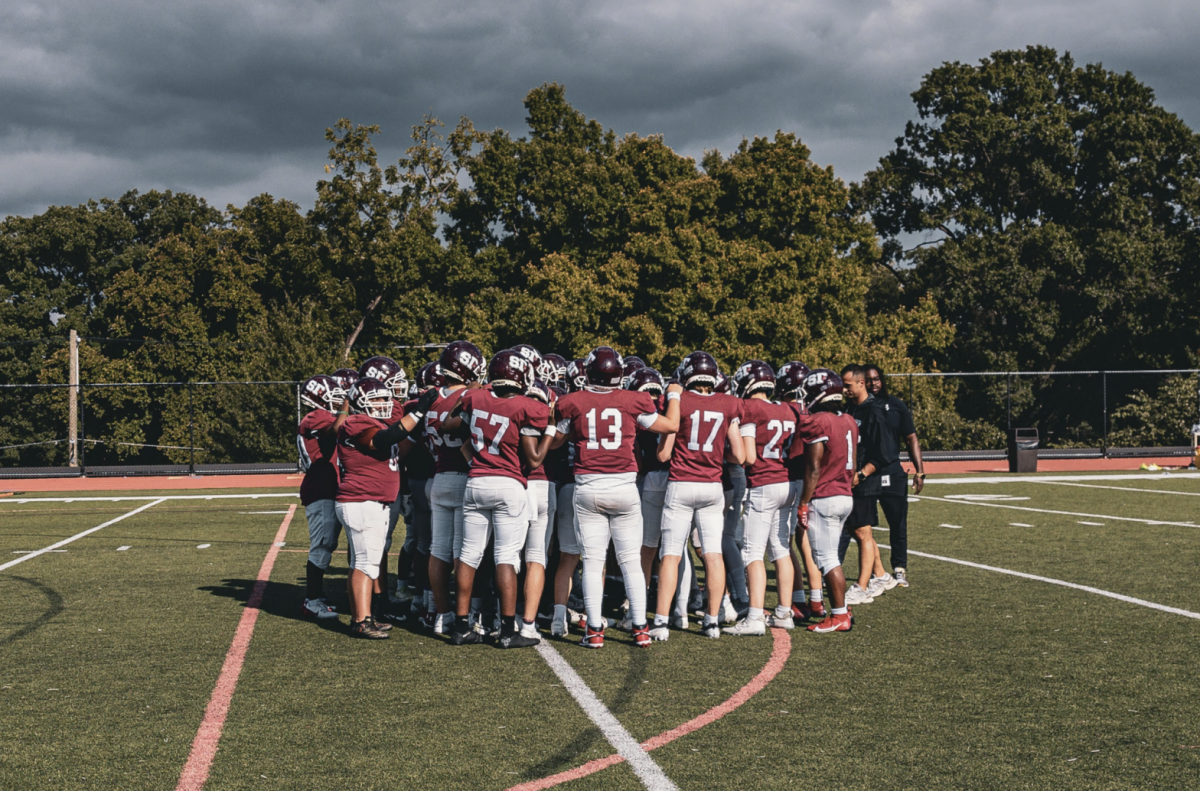After the close of the 2024 Paris Summer Olympics on Aug. 11, NBC’s viewership numbers have been released. According to CNN, Paris 2024 has become the most-streamed Olympics of all time. In the United States, where NBCUniversal has the broadcast rights, viewership averaged 30.6 million viewers, which is a 82 percent jump from the 2021 Tokyo Games.
This statistic compiles the viewership from all of NBCUniversal’s channels, networks, and streaming services, including the NBC Television Network, USA Network, NBC Golf Network, CNBC, Universo and Peacock.
The average is combined from the live broadcasts during the morning and afternoon, as well as the primetime shows at night.
This rise in viewership follows a rocky decade of the Summer Olympic Games. From record viewership numbers in 2008 and 2012 to declines in 2016 and especially in 2021, Olympic viewership has experienced both highs and lows in the past two decades.
The 2021 Games, where athletes performed to empty stadiums under strict pandemic restrictions, saw record-low viewership due to disorganization, virus threats, rescheduling and a shift in the public’s media consumption habits, among other factors.
According to Statista, the global TV broadcast audience dropped to 3.05 billion from 3.2 billion in 2016.
This decline in viewership seemed to be a trend, as 3.6 billion watched the Games in 2012, down from the record-shattering 4.7 billion from the Beijing Summer Olympics of 2008, as reported by Nielsen Media Research.
Furthermore, the Tokyo Games averaged just 15.6 million domestic viewers across NBC’s platforms, a record low.
As the Olympics headed to France this year, the International Olympic Committee (IOC) sought to recapture the hearts of the global audience through its broadcasting and digital media strategies and unique integration of location and fan engagement.
According to the IOC Marketing Guide for Paris 2024, Olympic Broadcasting Services (OBS) acted as the host broadcaster for coverage of the Games worldwide.
They also used the latest state-of-the-art technology, including drones, Ultra-High-Definition (UHD) cameras and more than double the number of replay cameras compared to Tokyo 2021.
Placing more emphasis on athlete-centric coverage and storytelling, they aimed to connect athletes further with the audience.
In addition, they partnered with various media rights holders and their streaming platforms, including NBCUniversal and its Peacock streaming services in the USA, to make coverage more accessible around the world.
Paris 2024 reflects the continued rise in the importance of digital media in covering the Olympic Games. Peacock covered far more events for no additional fee compared to its coverage of Tokyo 2021, making it more accessible for Americans to watch.
The IOC has also embraced social media and its role in increasing viewership and promoting the Games.
“The main objective of the IOC Digital Strategy is to promote athletes and sports, by growing digital engagement around the world, during and between the Olympic Games,” said Yiannis Exarchos, CEO of Olympic Channel Services, at the 142nd IOC Session in Paris.
“We want more people, spending more time, more often on our platforms,” he added.
The Olympics stimulated increased levels of engagement across various social media platforms. X, formerly known as Twitter, reported “record-breaking” activity following the 2024 games, including 103 billion engagements, 11 billion video views and over 238 million posts related to the Olympics.
TikTok reported 1.3 million Olympics-related posts as well, a massive increase of 1,828 percent from the Tokyo Games, according to SportsPro Media.
The IOC also utilized the location of this year’s Games to its utmost advantage. Paris is one of the world’s leading tourist destinations, and the Olympic opening ceremony celebrated various aspects of the French capital’s history and culture, putting its glamor and excitement on display for the world to see.
Furthermore, several sporting events were held in various public venues. For example, beach volleyball and paralympic soccer were held in the Eiffel Tower stadium built on the Champ de Mars, giving the athletes and fans a view of the iconic landmark as the games commenced.
The most marked difference between the Paris Games and its predecessor, the Tokyo Games, is the involvement of fans on-site. After the pandemic led to restrictions on live audiences, the IOC sought to engage with local and foreign fans who were in Paris for the Games.
More than 9.5 million out of 10 million available tickets were sold, 68 percent of which were to French buyers and 32 percent to international buyers.
Thousands of spectators arrived at the Olympic venues to watch the athletes, and various sporting events broke previous attendance records. For example, basketball saw 1,078,319 fans for both the men’s and women’s games.
As attention turns to the 2028 Summer Olympics, which will be hosted in Los Angeles, the question remains whether the Games will achieve the same success as Paris.











































